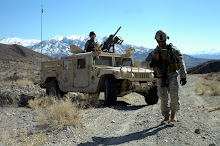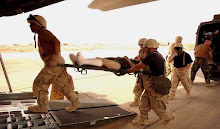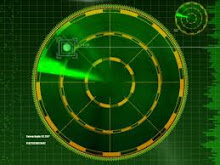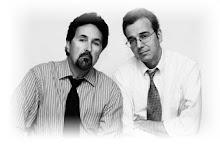By Steve Hammons
This year’s Super Bowl might show us examples of ESP in sports.
It is well known that constant practice in sports and “situational awareness” can combine to allow an athlete to perform “on instinct.”
Intense focus in the here and now in the middle of multiple rapidly-occurring events in a sport contest can combine to create an environment where athletes can experience “anomalous cognition,” meaning unusual or unconventional perception and awareness.
Many people have read about ESP in fields like intelligence (U.S. Project STAR GATE), police work and martial arts, but the frequency of anomalous cognition in sports may not be as widely recognized.
What do we mean by the word instinct? Some researchers believe that instincts are also related to a “sixth sense” that can transcend our normal view of perception. That is, we can perceive in ways in addition to, complementary to, though slightly different than, our five senses of sight, touch, hearing taste and smell.
Some researchers suspect that ESP and anomalous cognition are not unusual at all. Rather, this is a natural part of human consciousness. It is not paranormal – it is normal. We might even call it “complementary cognition” or “integrative cognition.”
TWO RECON PIONEERS
When the book "Golf in the Kingdom" by Michael Murphy was published in 1972, many people interested in sports had not fully considered the impact of unconventional consciousness in athletics. His 1992 book "The Future of the Body" also addresses related subjects.
Murphy was co-founder of the Esalen Institute in Big Sur, California, where many elements of the human potential movement and expanded human consciousness were explored. In his younger days, Murphy had served in the U.S. Army as a psychology specialist.
The interests and perspectives of Murphy and many of his colleagues involved in the human potential movement were recently explored in the movie "The Men Who Stare at Goats."
A close associate of Murphy, president emeritus of the Esalen Institute George Leonard, also wrote the 1975 best-selling book related to ESP or expanded consciousness titled "The Ultimate Athlete."
A fifth-degree black belt in Akido himself, Leonard also explored these topics in the book "The Way of Aikido: Life Lessons from an American Sensei" (1999).
Leonard was a former Army Air Corps attack (fighter-bomber) pilot during WWII, serving in the southwest Pacific theater. He served as an analytical intelligence officer during the Korean War.
Leonard passed on recently, on Jan. 6, 2010.
STAR GATE AND SPORTS
Perhaps some of the most useful research on the topic of unconventional awareness and perception comes from the U.S. government joint effort known as Project STAR GATE, conducted during the 1970s, ‘80s and ‘90s.
This activity explored the ability of individuals to perceive things, places, information and situations from a remote location. They were able to gather important intelligence using only their consciousness.
In fact, a Navy SEAL officer wrote in a researcher paper for the Marine Corps War College that Project STAR GATE reflected a concept he called “transcendent warfare” – using advanced and emerging understanding in new ways.
Project STAR GATE activities also noted a key element that dovetails with sports and athletics: It seemed that the ESP impressions came to “remote viewers” through their bodies in a somewhat unconscious or subconscious way.
The people involved in the specific technique and protocol named “remote viewing” in Project STAR GATE found that letting impressions bubble up from their subconscious, and not using the conscious mind to try to interpret the information, led to more successful results.
They typically relaxed their minds and used various techniques to attempt to acquire information, then let their body express these perceptions by making sketches and notes in a spontaneous way.
Here we see the connection with sports and other activities. When the task at hand is partially a physical one, and we are using our body as much as, or more so than our conscious thinking mind, we may be more prone to accessing our sixth sense.
In this year’s Super Bowl, we might see examples of this if we look closely. And, if we open our minds to these possibilities, we might see expanded perception in our own lives.
These aspects of human development and education are relevant to not only sports and athletics, but a broad range of human activities in many fields.
And what is fun and interesting about the situation is the fact that we can look inside ourselves and explore these fascinating and transcendent elements of human consciousness, tapping into our own sixth sense.
skip to main |
skip to sidebar

In the past 30 days, readers from approximately 40 countries or territories using about 20 languages visited the Joint Recon Study Group site.

To see more articles, scroll down the right-side column.

Steve Hammons

Articles from the Joint Recon Study Group site and Transcendent TV & Media site are included.
The Joint Reconnaissance Study Group is the San Diego-based, combined-service/agency, research-and-activities team in my novels "Mission Into Light" and sequel "Light's Hand." This site contains information of interest to the JRSG.
Home page: Joint Recon Study Group site
Readers from around the world visit this site.

In the past 30 days, readers from approximately 40 countries or territories using about 20 languages visited the Joint Recon Study Group site.
April 2021 threat alert: ‘Force protection’ for our troops now the responsibility of all Americans
First responders must deal with society’s problems, shortcomings, injustices every day
Could some UFOs be linked to Native American 'white stone canoe' legends, stories?
Wildland firefighter basic training available at community colleges, tech schools, training centers
‘Boomer remover’ coronavirus is bigger threat to WWII generation that saved the world
‘Black swan’ events that aren’t: Coronavirus, climate emergency, unidentified aerial phenonema
Reagan’s complete 1987 UN message on ‘alien threat’ overlooked: Grave danger here, now
Was Reagan briefed about UFOs and original ‘Day the Earth Stood Still’ movie?
My military draft lottery number was #165 during final Vietnam War years
“Keep On The Sunny Side,” by The Whites, from movie O Brother, Where Art Thou?”
Living along Ohio River for centuries, Native Shawnee called it ‘Kiskepila Sepe’ – ‘Eagle River’
Native American words around us: States, towns, rivers, lakes, terrain, plants, animals, military
Athens County, Ohio, was key spot when colonists, Redcoats fought Shawnee in 1774 battle
1787 Northwest Ordinance set course for Ohio, Indiana, Illinois, Michigan, Wisconsin, Minnesota
Smallpox-tainted blankets were 1763 bioweapon on northern Appalachian Mountains frontier
Diana Krall performs “Maybe You’ll Be There" live in Paris with Paris Symphony Orchestra 2001.
Books to read in 2021? Novels "Mission Into Light" and the sequel "Light's Hand"
Novel excerpt: Renew, prepare America with ‘Urgent Response Group’ for teens, young adults
Diana Krall performs “I Get Along” live in Paris with Paris Symphony Orchestra 2001.
Steve Tyrell sings “Give Me the Simple Life.”
Diana Krall performs “Love Letters” live in Paris with Paris Symphony Orchestra 2001.
Visit the article archives!

To see more articles, scroll down the right-side column.
Novel "Mission Into Light" overview on Amazon
Novel "Light's Hand" overview on Amazon
Adventures of the Joint Recon Study Group: Overview and synopses of activities and operations
Key chapter overviews: Points of interest in the novel "Mission Into Light"
Key chapter overviews: Points of interest in the novel "Light's Hand"
Multimedia rights available
English and foreign-language book rights, audio book and e-book rights for "Mission Into Light" and "Light's Hand" are available. Movie and TV rights are available.
I'm seeking agent representation for these works and rights.
Please contact Steve Hammons for more information at hammons55@gmail.com.
Feature film screenplay
I completed a feature film screenplay in 2006 based on “Mission Into Light” and “Light’s Hand” combining key elements of both novels.
The screenplay takes audiences into the adventures and discoveries of the Joint Recon Study Group and the relationships among team members, friends and associates as they explore leading-edge research and emerging transcendent developments.
I'm seeking agent representation for this screenplay.
.........................
I also wrote a TV series pilot script based on "Mission Into Light" and "Light's Hand" story. I'm seeking agent representation this script.
About the Author

Steve Hammons
About the Author
I was born and raised in southwestern Ohio near the Kentucky and Indiana borders, then went to college at Ohio University in the southeastern Appalachian region of the state near West Virginia.
I graduated with a dual major in communication (journalism focus) and health education (psychology focus) with a minor in pre-law.
Ohio U. is home to the respected Scripps College of Communication and E.W. Scripps School of Journalism.
I also completed two graduate-level courses in guidance counseling theory and method at Ohio U.'s College of Education, School of Applied Behavioral Sciences and Educational Leadership.
At the end of my undergraduate education at Ohio University, I moved to the beautiful American Southwest where I applied my education, continual training and and ongoing experience to related professional fields such as health care, journalism and special research areas.
My novels "Mission Into Light" and the sequel "Light’s Hand" are available in e-book and 6"x9" paperback from most online booksellers worldwide.
Readers review metaphysical-military-intelligence adventure novel ‘Mission Into Light’
My articles on DoD CultureReady blog, Defense Language and National Security Education Office
Transcendent TV & Media site
Past articles: Scroll down the right-side column for more articles.

Articles from the Joint Recon Study Group site and Transcendent TV & Media site are included.































































































































































































